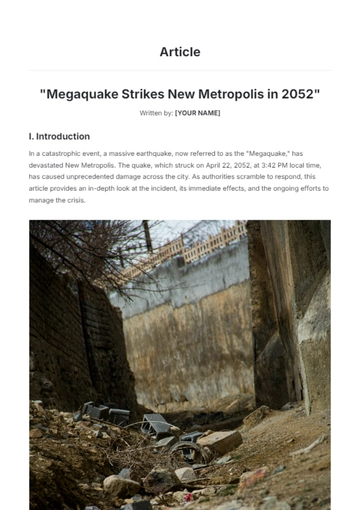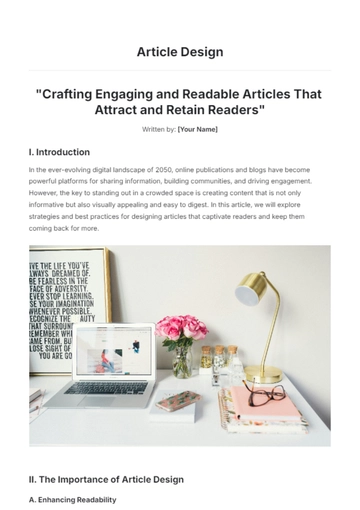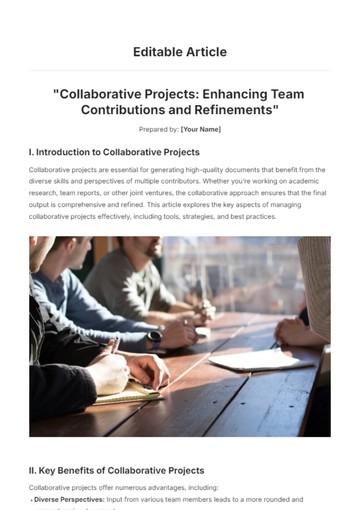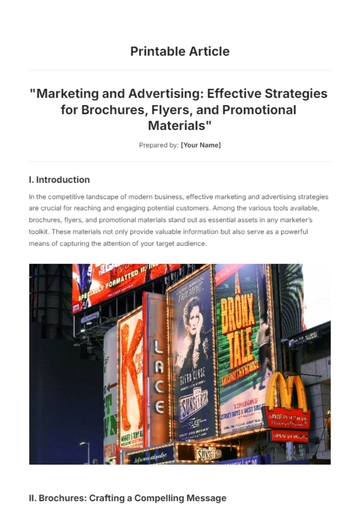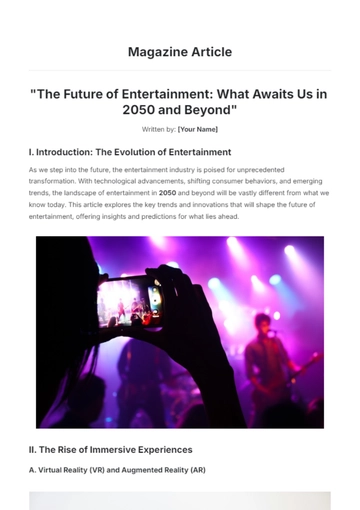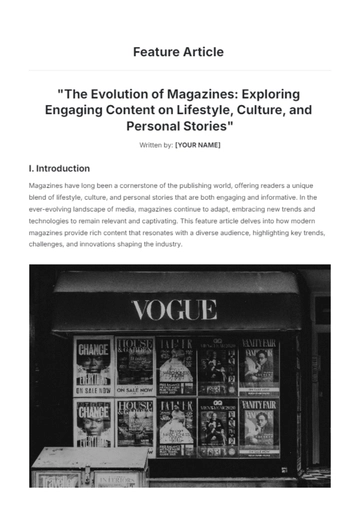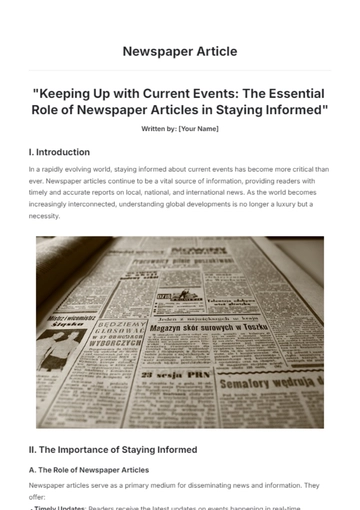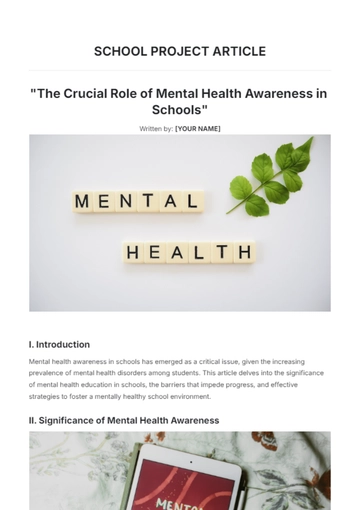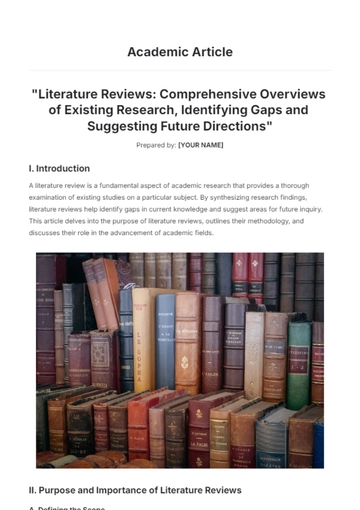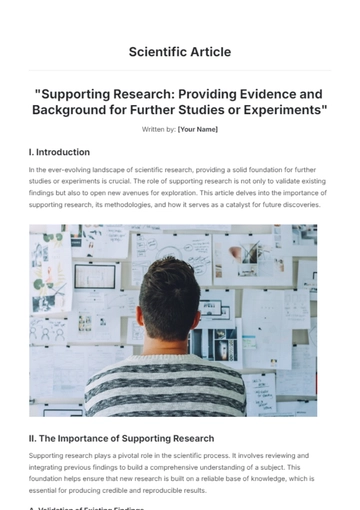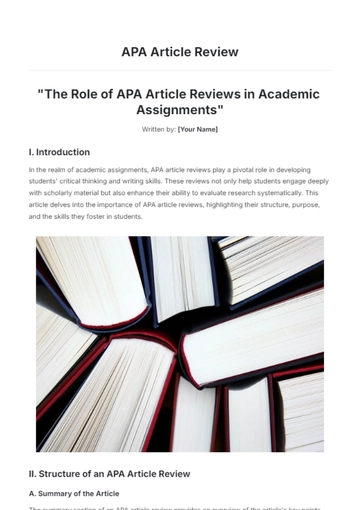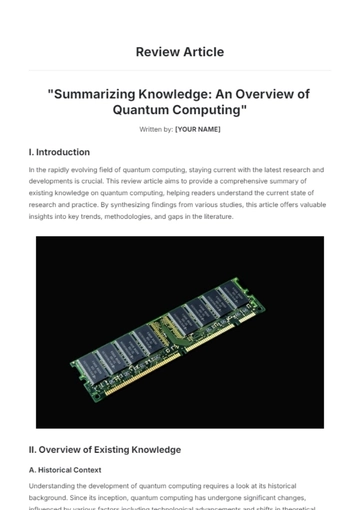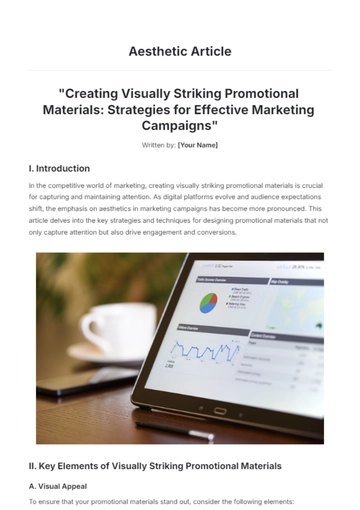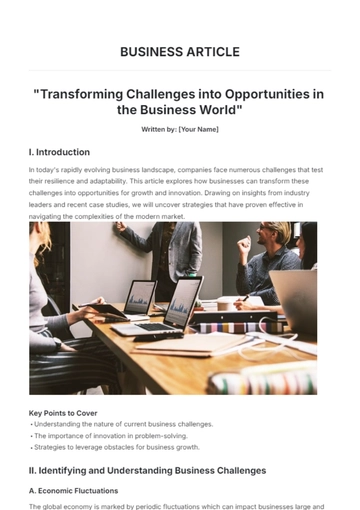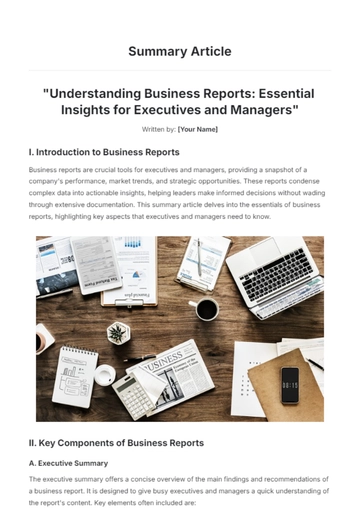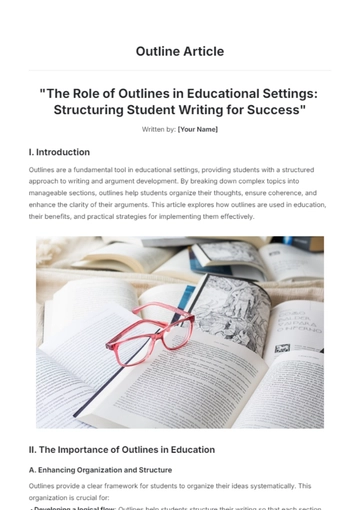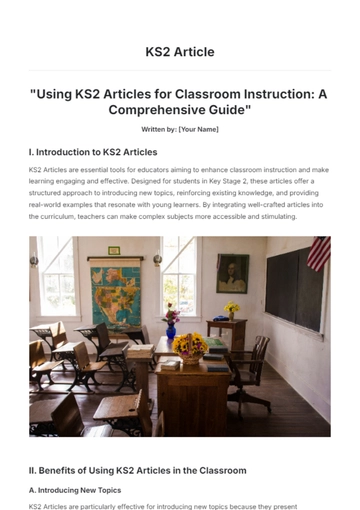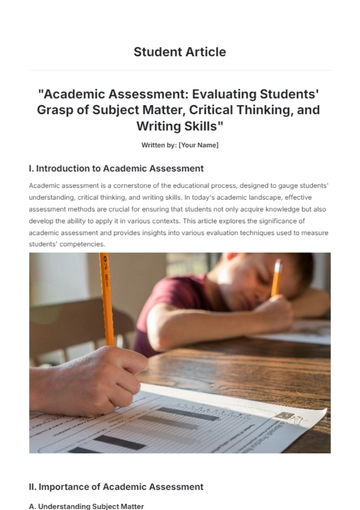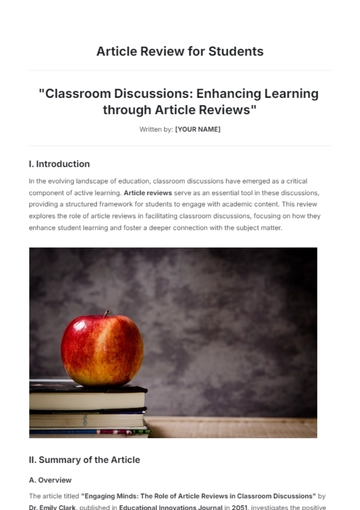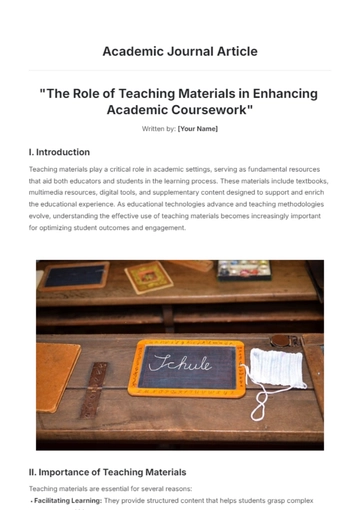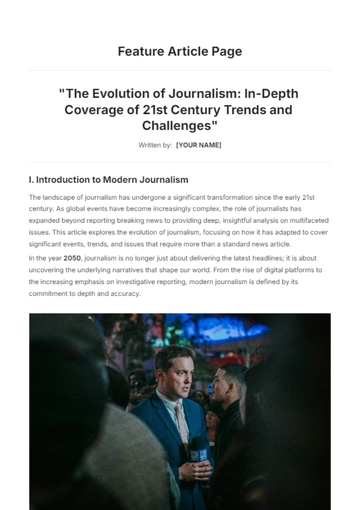Free Commentary Journal Article

Written By: [Your Name]
Commentary Journal Article on Modern Education Practices
I. Introduction
The realm of education is experiencing rapid and profound changes, driven by technological advancements, evolving pedagogical theories, and shifting socio-economic dynamics. This commentary delves into contemporary trends in educational practices, examining their implications for students, educators, and institutions.
II. Technological Integration in Classrooms
The integration of technology in classrooms represents one of the most transformative trends in modern education. The advent of digital textbooks, interactive learning platforms, and the ubiquitous presence of tablets and laptops has fundamentally altered teaching and learning paradigms. Students now have instant access to a vast array of information, fostering a more dynamic and interactive learning environment.
The emergence of artificial intelligence (AI) in education further enhances this transformation. AI-driven adaptive learning systems are personalizing educational experiences by tailoring content to individual student's needs based on real-time performance data. This personalized approach not only supports diverse learning styles but also promotes deeper understanding and retention of material.
III. Shift Towards Student-Centered Learning
A significant shift in educational practice is the move toward student-centered learning. Unlike traditional teacher-centered models, where educators are the primary source of knowledge, student-centered approaches place students at the core of the learning process. This paradigm shift emphasizes active student engagement, critical thinking, and self-directed learning.
Project-based and inquiry-based learning are prime examples of student-centered methodologies that are gaining traction. These approaches encourage students to tackle real-world problems, fostering practical skills and making learning more relevant and engaging. By focusing on problem-solving and exploration, these methods bridge the gap between theoretical knowledge and practical application.
IV. Emphasis on Soft Skills Development
In addition to academic content, modern education increasingly prioritizes the development of soft skills, such as communication, collaboration, and emotional intelligence. These skills are crucial for navigating an interconnected and rapidly changing world. Educational institutions are embedding activities and curricula designed to cultivate these competencies through group projects, presentations, and peer interactions.
Social-emotional learning (SEL) programs are also becoming integral to the educational experience. SEL initiatives support students in managing their emotions, setting and achieving personal goals, and building positive relationships. By promoting emotional well-being and resilience, SEL contributes to both academic success and overall mental health.
V. Challenges and Considerations
Despite the advancements, modern education practices face several challenges. The digital divide remains a significant concern, as disparities in technology access can hinder equitable educational opportunities. Students from low-income or rural backgrounds may struggle with limited resources and connectivity, impacting their ability to fully benefit from technology-enhanced learning.
Additionally, the rapid pace of technological evolution necessitates continuous professional development for educators. To effectively leverage new tools and methodologies, educators must engage in ongoing training and skill development. Ensuring that all teachers are equipped to navigate technological changes is crucial for maintaining the effectiveness of modern educational practices.
VI. Conclusion
The landscape of education is evolving, offering exciting opportunities for innovation and improvement. Technological integration, student-centered learning, and the focus on soft skills development are reshaping the educational experience, and better preparing students for the future. However, addressing the challenges associated with these changes—such as the digital divide and the need for ongoing educator development—is essential for ensuring equitable access to high-quality education. As we advance, collaborative efforts among educators, policymakers, and stakeholders will be pivotal in creating an inclusive and effective educational system.
- 100% Customizable, free editor
- Access 1 Million+ Templates, photo’s & graphics
- Download or share as a template
- Click and replace photos, graphics, text, backgrounds
- Resize, crop, AI write & more
- Access advanced editor
Template.net's Commentary Journal Article Template offers an editable and customizable structure for writing insightful commentaries. Editable in our AI Editor Tool, this template helps you articulate your perspectives on current research or societal issues, ensuring your commentary is well-structured, engaging, and meets academic journal standards for publication.
